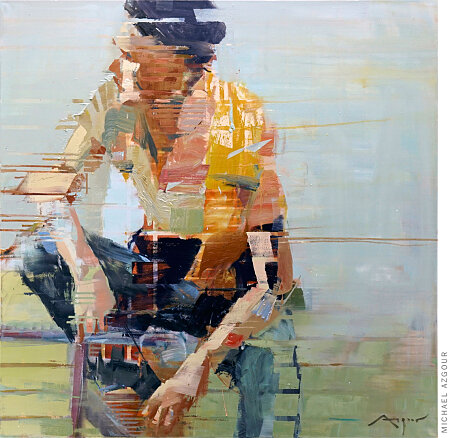
Giotto's Angels
Lamentation, the Scrovegni Chapel
In the chapel in Padua, the angels
sing of sadness—
their bodies tumbling high above
the woman who holds the head
of her broken son, theirs an ancient
sorrow. Awkward and unruly,
their feet and gowns dissolve
in heavenly blue—
but the arms, hands, their faces
clutch and twist and writhe—
all of it wilder than our own wild loss.
Such fierce creatures, unraveled and undone.
And Giotto understood this old story,
as did those who mourned a much-loved child
in Africa, millennia ago, as did those who found
his bones. Maybe not wanting
to let him go, they said.
The boy shrouded in skins, laid to rest
on a pillow of grass—
oldest glimpse of human grief—
as if they, too, knew these angels, witness
to beauty that is always beauty lost.
How blissful those who mourn,
for they shall be aided—
So, blessings, then, on the man who wanders out
alone, past the infinite fields,
past the light through tender leaves, the trees—
and blessings on the woman who cannot
find that one she's lost, who looks
everywhere amid her own small hours,
within the folds of night—
and blessings, too, on the one whose hopes
are burned by sun and fire—
who lives with days that smell of ash and ruin.
In their country composed of sky, Giotto's angels
sing a solace of weeping and of light,
theirs a mercy not yet found in time—
How blissful those who mourn—
